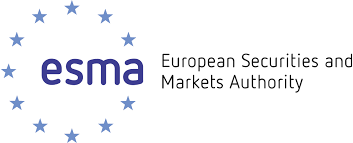Retail trading in Europe has surged in recent years, creating a vast range of online brokers. This wealth of choice means selecting the right broker can be a difficult task. In this guide, we help investors navigate the top online brokers in Europe, highlighting the key factors to consider when choosing between platforms.
How To Compare Online Brokers In Europe
With a population of over 700 million, Europe is one of the biggest trading markets in the world. Plus, in recent times, increased time at home has meant that more traders are looking to explore trading the markets. This increased demand has meant the pool of online brokers in Europe has broadened.
Finding the right online broker is more important than ever with so many options in the market. But it’s not just about choosing the right asset at the right price, there are many other factors to consider. We’ve listed the top things to look out for below.
Assets & Markets
European Stocks
Nearly every country in Europe has a stock exchange. Five of these are considered major and have a market capitalization of over $1 trillion. European stock exchanges make up two of the top 10 major global stock markets.
Europe’s largest stock exchange is Euronext; connecting seven economies based in Amsterdam, Brussels, Dublin, Lisbon, London, Oslo, and Paris with the 1,870 companies listed.
The London Stock Exchange (LSE) is the second-largest in Europe, listing around 2,000 companies.
Both exchanges have the same trading hours and are open from 8 AM to 4:30 PM (GMT) Monday to Friday.
Cryptocurrency
Within the EU, crypto assets are classified as qualified financial instruments (QFIs) and are therefore legal to trade.
Exchanges that deal in QFIs are regulated at a regional level.
Firms that hold a QFI licence are allowed to sell cryptocurrency-related products.
EU legislation must be followed by online brokers in Europe to obtain this license.
Trading cryptocurrencies via CFDs is also restricted for retail traders within the UK.
Forex
The London trading session contributes to approximately 35% of the total average forex turnover globally.
During this session, currency pairs such as EUR/USD and GBP/USD are traded with tighter spreads due to high market liquidity.
Every country has its own regulator, but European law permits firms to operate financial services within any EU country as long as they are regulated by at least one European authority.
The governing EU legislation for these bodies is known as MiFID.
Commodities
The majority of online commodity trading in Europe occurs in either spot markets or futures markets.
The Intercontinental Exchange (ICE) is the most recognized commodity exchange in Europe, an electronic commodity exchange with no physical trading floor.
Many top online brokers in Europe will offer futures and commodity trading. Popular assets include gold, silver, crude oil, and Brent oil.
Indices
Well-known indices from Europe include the FTSE 100 (UK), the Euro Stoxx (Europe), and the DAX 40 (Germany). The best online brokers in Europe will offer the ability to trade CFDs or ETFs on at least one of these indices.
Tools & Platforms
Successful trading requires top execution speeds, real-time data, and convenient charting and analysis tools.
Pepperstone, eToro, and DEGIRO are considered some of the best online stock brokers in Europe for their platform features.
Both provide simple navigation and comprehensive analysis tools.
They also offer mobile app compatibility with the full suite trading features available on desktop and web browser. 
Fees
The best online brokers in Europe will be transparent about their fee structure.
Since these can vary between platforms dramatically, it’s vital that traders shop around to be confident the fees being promoted are competitive in the market.
Fees generally come in the form of commissions (per trade) or spreads (mark-up).The top online brokers in Europe for commission-free trading include:
- Degiro – Offering one commission-free ETF trade per month, regardless of size.After that, international ETF trading costs €2 plus 0.03% of the order value.Stock trading charges vary but investment on the London Stock Exchange is charged at £1.75 plus 0.022%
- XTB – Commission-free stocks and ETF trades in selected European countries.CFDs on stocks and ETFs are charged from 0.08% per lot
- eToro – EU investors can benefit from zero commissions on stocks and ETF trading.Commodities, crypto, forex, and indices are offered at competitive spreads
Other charges to consider are inactivity fees, account maintenance, plus withdrawal and deposit fees.
Sometimes there are third-party costs passed on to clients from the broker. These could include exchange access fees, bank transfer fees, and currency conversion fees.
Leverage
The European Securities and Markets Authority (ESMA) introduced industry-wide limits on leverage for spread betting, forex, and CFD products offered to retail clients in 2018. The maximum leverage by asset is listed below.
- 1:30 for major currency pairs
- 1:20 for non-major currency pairs, gold, and major indices
- 1:10 for commodities other than gold and non-major equity indices
- 1:5 for individual equities
- 1:2 for cryptocurrencies
Demo Account
The majority of the best online brokers in Europe offer demo accounts. These are a great way to navigate platform features, practice day trading strategies, and understand available assets.
You can access virtual funds in simulated live market conditions. The majority of the top online brokers in Europe offer these, including XTB, eToro, and IG.
Regulation
Regulated brokers are governed by rules that aim to protect retail traders. Although not mandatory, it is highly recommended to select online brokers in Europe that comply with regulations.
Unregulated stock brokers in Europe could mean a lack of trader protection, financial harm, plus poor customer and platform services. Traders can verify a broker’s license number on the respective financial authority database.
The European Securities and Markets Authority (ESMA) is an independent European Union financial regulatory body. The main functions of the authorization are to encourage information transparency, promote efficient and stable financial markets, and to safeguard retail traders.
This is an established body formulating guidelines for the trading brokers in Europe since 2001. The ESMA authority provides:
- Supervision – Directly overseeing financial bodies and trade repositories
- Standardisation – Sharing best practices and improving efficiencies
- Rules – Providing a rulebook for EU financial markets, aiming to create equal opportunities for investors and EU bodies by advising on legislation and developing technical standards
- Risk – Managing investor hazards, including market stability. Anticipatory action can be taken to avoid problems that threaten these
The Markets in Financial Instruments Directive (MiFID) is a European regulation that increases transparency across the European Union’s financial markets and standardises regulation requirements for firms operating in the area. It has been functioning since 2007.
MiFID sets only basic requirements so regulator restrictions can vary between countries. Some countries, such as Bulgaria and Malta, only meet the basic requirements while others, including the United Kingdom and Switzerland, operate above these.
However, transparency, segregation of funds, and investor compensation rules are all mandatory.
Some examples of MiFID protections include the restriction of bonuses and promotions to retail traders and the mandatory provision of negative balance protection on margin accounts.
This stringent financial regulation creates a safe environment for those who invest with an EU-based broker.

Specific Regulators
Above we have described regulation that applies to brokers in Europe.
In the EU, if a financial services firm is regulated by a European authority that applies MiFID, they can practice in any member state.
This is no longer the case for the UK, which since Brexit, sits outside of the EU.
In this section, we explore the most common regulators and their respective countries.
The Financial Conduct Authority (FCA) – The UK
The FCA was established in 2013 to protect UK consumers, enhance the integrity of the British financial system, and serve the interests of clients by encouraging healthy competition between financial services companies.
FCA regulation is mandatory for online brokers in Europe selling their services to UK clients.
The FCA will ensure that those offering investments can make sensible decisions in their clients’ interests and will also be held accountable for their actions.
However, this is not the same for cryptocurrencies.
Even if they hold FCA regulation, crypto exchanges will not be held accountable for fluctuations in the value of assets and the loss this can cause.
The Cyprus Securities and Exchange Commission (CySEC) – The EU
The CySEC was launched in 2001 and is the largest regulator of forex and binary options brokers in the world.
Its main responsibilities are to supervise brokers and distribute licenses to platforms while protecting customers.
The CySEC promotes freedom of trading, allowing retail traders to implement various strategies, such as using high leverage and hedging.
Customer Support
Customer support is vital when reviewing online brokers in Europe.
Common issues include platform installation problems, account opening queries, or deposit and withdrawal issues.
Security
It’s also important to consider the security of an online broker in Europe before investing, particularly with regard to payments, personal data and account privacy. A broker’s years of service can also be a good gauge for safety, indicating the maturity of services and operations.
Plus, online brokers in Europe that are recognised by a top-tier regulator (such as the CySEC and FCA) should provide sufficient levels of security protection. Look out for PC and mobile data encryption, payment method protection, and 2-factor authentication (2FA).
Trading Taxes In Europe
It is a trader’s responsibility to file their own taxes based on investment activity. The amount owed varies by European country, averaging around 19.5%. Denmark levies the highest tax of all European countries at 42%.
A withholding tax is deducted from any bank interest and income from bonds earned by European residents on investments made in other member countries.
This applies to 28 European member states including Spain, Germany, Greece, and France. This ensures residents of one country do not evade tax by depositing funds outside the jurisdiction.
The majority of European countries comply with the EU Savings Directive, disclosing account holder names and earned interest.
The best online brokers in Europe offer 24/7 multilingual customer support methods, including email, live chatbots and telephone.
The EU withholding tax does not apply to trading returns, dividends from shares, or profits realized on investments.
It is important to note that this information should not be taken as tax advice. Consult an expert to learn more about paying taxes on your earnings.
Final Word: Online Brokers in Europe
Online brokers in Europe offer a reliable and secure trading environment for retail traders due to strict regulations and guidelines.
When choosing the best online brokers in Europe, consider which assets you want to trade and in what volume, as this may affect your search and limit your options.
FAQs
Which Assets Can Be Traded with Online Brokers in Europe?
The most popular day trading markets include forex, commodities, stocks, futures, and cryptocurrencies. Products such as CFDs and ETFs are also common.
Who Regulates Online Brokers in Europe?
The European Securities and Markets Authority (ESMA) is an independent financial regulatory body of the European Union.
Its main aims are to promote information transparency, efficient and stable financial markets, and to safeguard retail traders.
What Are The ESMA Maximum Leverage Limits For Online Brokers In Europe?
All online brokers in Europe are subject to ESMA leverage caps.These were introduced to protect retail investors from undue risk and include a maximum leverage rate of 1:30 for major currency pairs, 1:20 for major indices, and 1:2 for cryptocurrencies.
Do Online Brokers In Europe Offer Paper Trading?
Yes, the best online brokers in Europe offer demo accounts.These are a good way to understand platform navigation, access real-time market simulation, and practise trading strategies with virtual funds before opening a live account.
What Are The Main Features To Review When Choosing Online Brokers In Europe?
Retail clients should consider the following: fees, regulation, market access, security, customer support, and tools.
